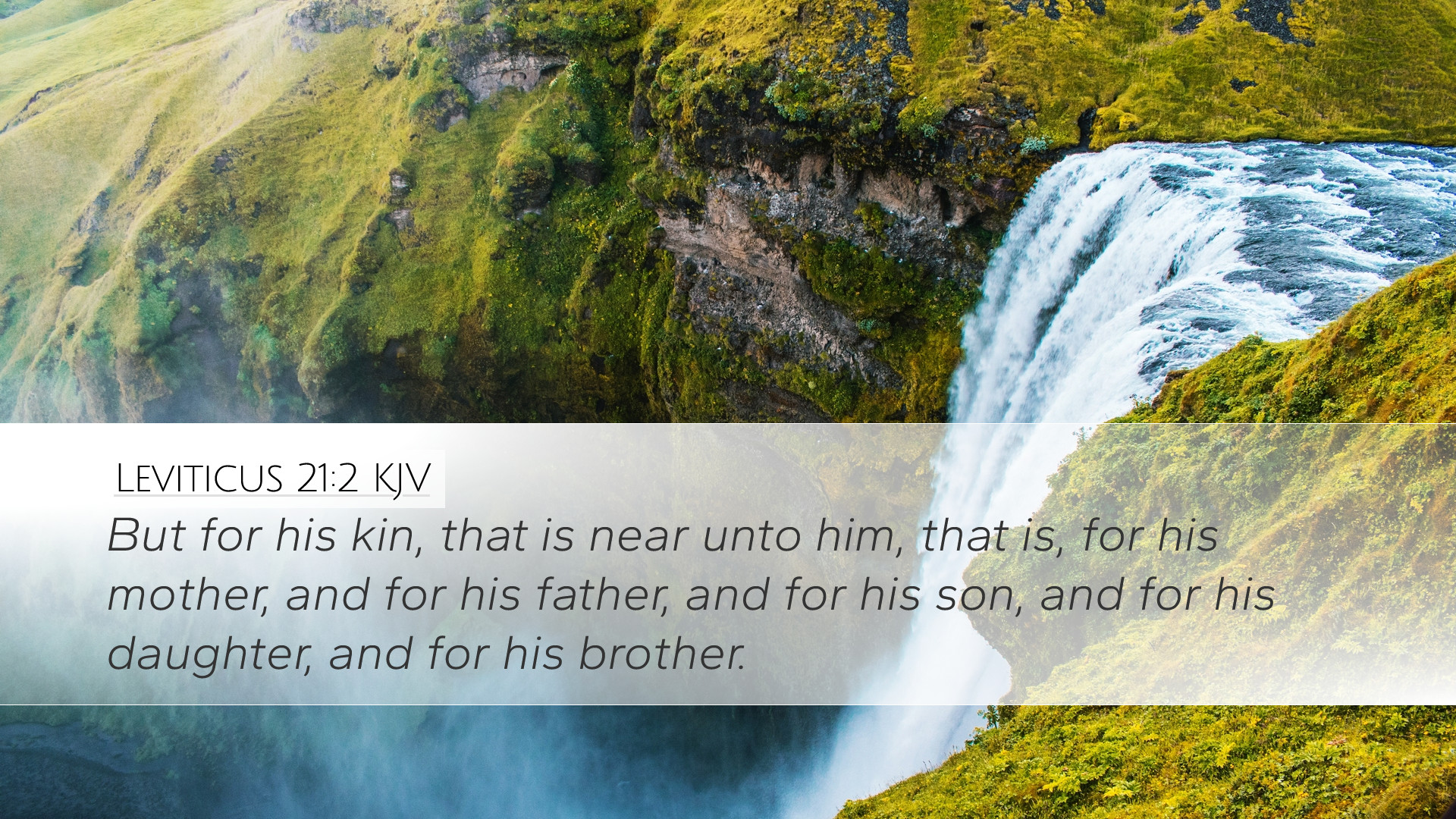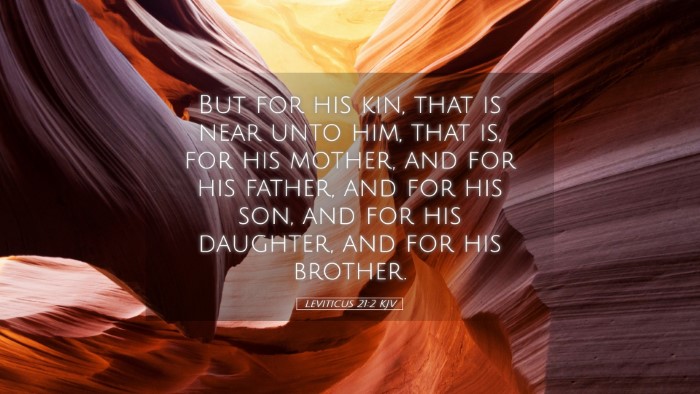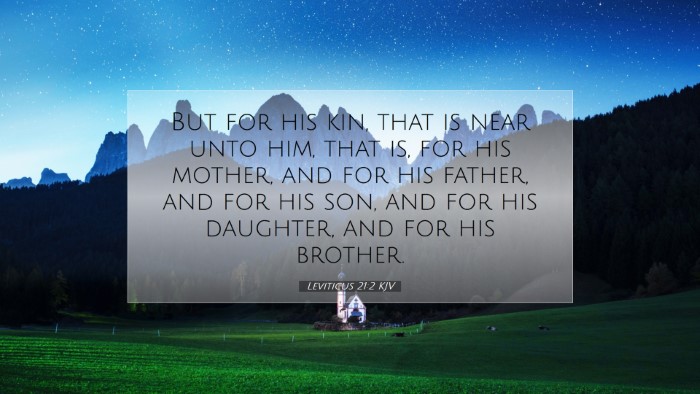Commentary on Leviticus 21:2
Verse: "But for his kin that is near unto him, that is, for his mother, and for his father, and for his son, and for his daughter, and for his brother," (Leviticus 21:2, KJV)
Introduction
This verse addresses the regulations surrounding the priestly conduct in mourning and emphasizes the significance of familial relationships in the life of a priest. Understanding the context and implications of this commandment offers important insight for modern religious leaders and students of theology.
Understanding the Priestly Role
According to Matthew Henry, the role of the priest in ancient Israel was one of utmost holiness and responsibility. Priests were expected not only to uphold the rituals of worship but also to exemplify moral integrity and spiritual dedication. The regulations mentioned in Leviticus 21 serve to delineate the character required of those serving in this holy capacity.
Albert Barnes elaborates on the significance of this particular commandment, noting that while priests were allowed to mourn familial losses, there were limitations. Mourning for immediate family members highlighted the balance between duty to God and love for family, showcasing the dual nature of a priest's responsibilities.
Contextual Analysis
The directive in Leviticus 21:2 comes within a broader passage that outlines various standards of conduct and holiness expected of priests. The insistence on mourning limits reflects a theological understanding that while human emotions are valid, they must not eclipse divine service. Adam Clarke emphasizes that the importance placed on the priestly role calls for a distinct separation from common emotional expressions, maintaining an elevated standard of conduct even during personal grief.
Kinship and Mourning
This command illustrates that among the various familial ties, special emphasis is placed on immediate family. Matthew Henry notes that the Hebrew concept of 'kin' identified the crucial immediate relationships that defined one's obligations during periods of mourning.
- Mother and Father: These relationships are foundational and signify respect and honor as commanding principles in the Torah.
- Son and Daughter: The continuing lineage of the covenant community is encapsulated in the priest's duty to their children.
- Brother: The term 'brother' here includes not just biological siblings but also those within the covenant family, reinforcing the community aspect.
Theological Implications
Albert Barnes points out that the possibility of mourning connects the dimension of human feeling with divine purpose. While grief is recognized, it should not impede the priest's primary duties before God. This speaks volumes to pastoral care in contemporary settings, where emotional responses must be managed within the context of spiritual leadership.
Balance of Duty and Affection
This passage challenges religious leaders today to consider how they balance personal loss and their responsibilities. The priest’s need to self-regulate their mourning reflects a broader principle applicable to pastors, who must often navigate grief and congregational care.
Conclusion
In summation, Leviticus 21:2 highlights the delicate balance between familial affection and the solemn duty required of religious leaders. As Adam Clarke underscores, this passage ultimately calls for a deep and nuanced understanding of mourning in light of service. The insights from Matthew Henry and Albert Barnes provide a framework that reinforces the timeless call for integrity, duty, and love in pastoral ministry.
Reflection Questions
- How can we apply the principles of Leviticus 21:2 to modern pastoral practice today?
- In what ways do we manage the emotions related to loss while fulfilling our spiritual duties?
- How does this verse inform our understanding of community and family within the church?


